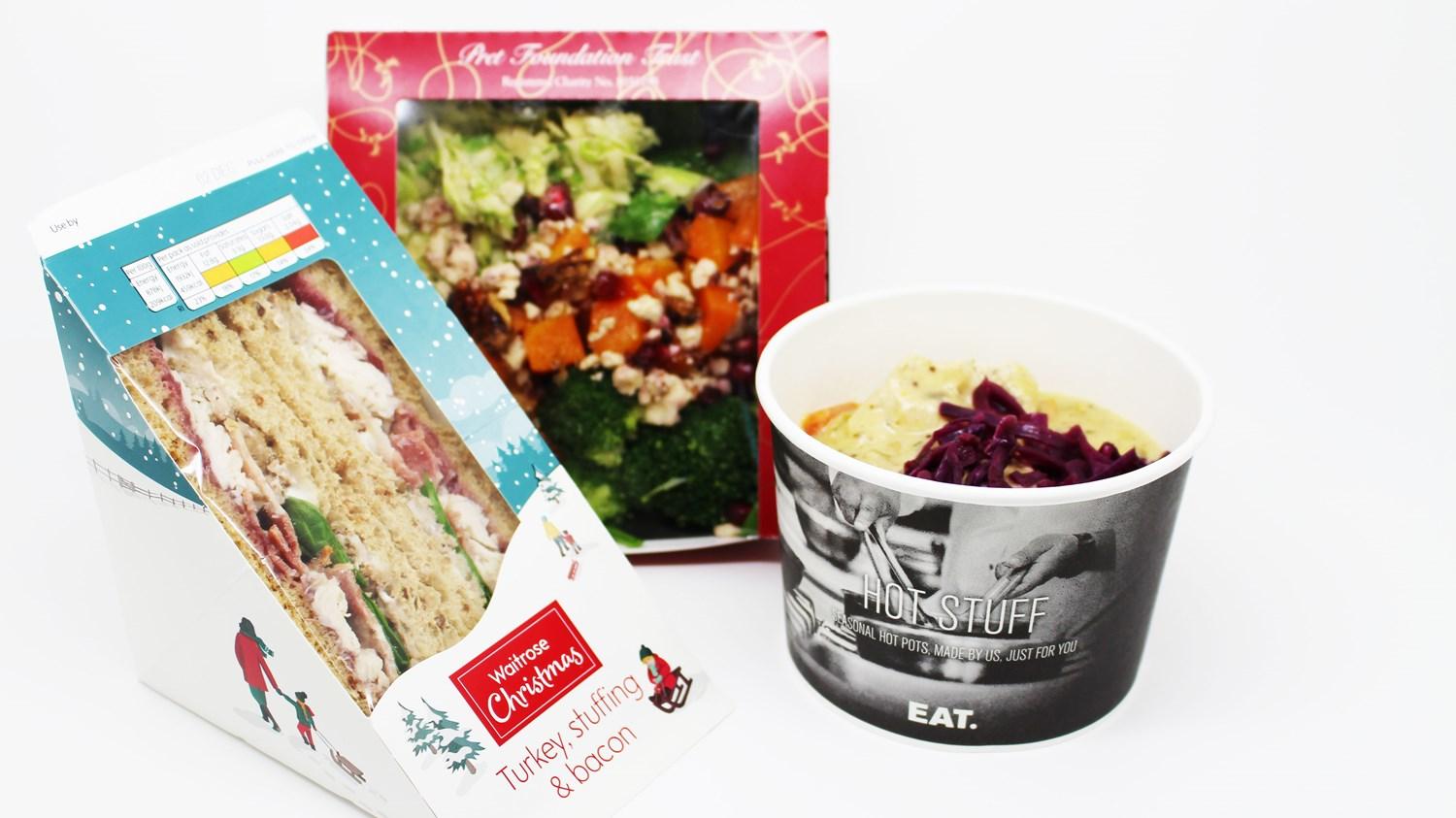
How to eat well when it's hard to shop and cook
Peer reviewed by Dr Sarah Jarvis MBE, FRCGPLast updated by Ellie BroughtonLast updated 18 Sept 2019
Meets Patient’s editorial guidelines
- DownloadDownload
- Share
- Language
- Discussion
Ultra-processed food - such as canned soup and ready meals - is an obvious go-to for people who struggle to shop and cook. But a new study finds it is associated with a higher risk of all-cause mortality. Can we avoid it?
In this article:
A large Spanish study found that eating five or more pieces of ultra-processed food a day was associated with a higher risk of all-cause mortality.
A few months earlier, a French study found ultra-processed food was associated with a higher risk of heart disease. Meanwhile, a small first-of-its-kind US study suggested eating ultra-processed food led to overeating and weight gain in its 20 participants.
Continue reading below
What do we mean by 'ultra-processed'?
The type of food at the centre of these studies comes from a classification system, NOVA. Its authors describe ultra-processed food (World Nutrition published a long list of examples) as 'industrial formulations' made with ingredients that you’d struggle to find in domestic kitchens, such as hydrogenated oils, hydrolysed proteins, anti-caking agents and emulsifiers.
In the NOVA system, authors distinguish what they call 'ultra-processed' from 'processed' by differentiating the methods used to make the two types, and generalised that 'ultra-processed' foods usually have 'five or more' ingredients listed on the back of the packet compared with two or three for 'processed'.
The main purpose, they write, of industrial ultra-processing is convenience. Given new findings about its impact on our health, it is unfortunate that the same people who (because of age, chronic illness or tiredness) need energy and nutrients the most are often those who rely the most on this food.
Poor diet problems
Dr Gavin Jamie, a GP in Swindon, is familiar with the risks of a poor diet.
"Sometimes elderly patients lose weight because they're not preparing decent food for themselves. We get people who survive on sandwiches, which is going to leave them more vulnerable to things like infections and muscle weakness. We also now class obesity as malnutrition: patients might be getting the calories but not necessarily the micronutrients."
Professor Mary Hickson, a professor in dietetics at the University of Plymouth, says that people who struggle to shop and cook run a higher risk of getting or staying unwell.
"If you're immobile, there's a risk of weight gain, and the heavier your body is the harder it is to move about. Equally, people who are ill or recovering are at risk of malnutrition because if you lose your appetite and don't get enough energy, protein, vitamins and minerals, it might make your condition worse and take you longer to recover."
But, she notes that the price of fresh and unprocessed food might leave many with little choice over how well they eat.
Continue reading below
What can help
Still, if you can afford to, then there are ways to eat well without shopping and cooking regularly. Jo Travers is a registered dietitian, and author of The Low-Fad Diet. 'No-cook dinners' are her speciality (she particularly likes fish finger sandwiches).
Don't skip the freezer section
First, Travers recommends that people who are still haunted by the memory of how frozen fruit and veg used to taste, check the quality of what's in the freezer aisle now.
"Frozen veg, which used to be horrible, is now brilliant. When things defrost they don't turn into complete mush anymore like they used to. It is cheap, and full of nutrients - it gets picked and frozen almost instantly."
She suggests adding a handful of frozen spinach when heating up a jar of pasta sauce to double the nutrient and fibre content of a dinner, without extra washing up or prep. On other days, buying a fresh bag of ready-to-eat salad and adding ingredients with a long life (nuts from a packet and olives from a jar) would work for a no-cook meal, if you have time and energy to shop.
But, she notes, being stuck at home will probably change shopping and cooking habits. People who usually make rice, beans, lentils or flavoured couscous from scratch, for example, might be more likely to eat well if they buy these things in ready-cooked packages instead.
"If you've got to stand over it then for some people it can be difficult. If [the effort] means you're not going to eat it, then you should think about spending a little extra money."
Get it delivered
Hickson recommends supermarket deliveries, and agrees about frozen veg.
"It's much easier than getting it fresh from the market and having to prepare it all yourself. Frozen fruit and veg are equivalent to fresh - and canned fruit and veg, although they're not as good as fresh and frozen, are useful too."
For those without the energy to cook at all, she adds, frozen meals that have been cooked from scratch offer more nutrients (even if frozen in the interim) than ready meals. Batch cooking on 'good' days and freezing for later could be a good approach.
Stay hydrated
Beyond diet, both Jamie and Hickson highlight Public Health England's advice to take vitamin D supplements over the winter, and all year round for those who struggle to get out in the sun or need to cover up outdoors. They both also agree that staying hydrated is a must.
Jamie notes: "Any non-alcoholic fluid is absolutely fine. There's an urban myth that drinking tea and coffee doesn't contribute towards fluid levels: it does."
For further advice, Hickson recommends the British Dietetic Association's 'Food Facts' (with recipes and meal plans). For older people in particular, Age UK and partners have a new guide called 'Eating well' coming out on 23 Sept.
In short, experts advise a common-sense approach: as much fresh food in your diet as you can manage. Ultimately, Travers says, a person who's ill or recovering does well to nourish an appetite.
"If you get a load of things in your cupboard ready to go, there's no shopping to do on a regular basis and virtually no cooking to do, and you can still have really good-quality food."
Patient picks for Healthy eating

Diet and nutrition
How to have a healthy Christmas party
Christmas parties are just around the corner and ‘tis the season to be jolly - but if you’re not careful, also the season to pile on the pounds. These days, we’re all more aware of the dangers of excess fat and sugar in our diets, but traditional Christmas foods all seem to hark back to the days when nobody had to worry about their weight.
by Dr Sarah Jarvis MBE, FRCGP

Diet and nutrition
What's the healthiest high street Christmas sandwich?
It is the festive time of year again and that means Christmas sandwiches are back on the shelves! So, for those who enjoy a festive lunch but are a little curious as to just how calorific these seasonal sarnies are, we decided to investigate. To do this we looked at six popular lunch stops (EAT, Pret, Waitrose, Sainsbury's, Tesco and M&S) to see which establishment's Christmas baps had the healthiest profile.
by Rose Constantine Smith, ANutr
Continue reading below
Article history
The information on this page is peer reviewed by qualified clinicians.
18 Sept 2019 | Latest version

Ask, share, connect.
Browse discussions, ask questions, and share experiences across hundreds of health topics.

Feeling unwell?
Assess your symptoms online for free
Sign up to the Patient newsletter
Your weekly dose of clear, trustworthy health advice - written to help you feel informed, confident and in control.
By subscribing you accept our Privacy Policy. You can unsubscribe at any time. We never sell your data.